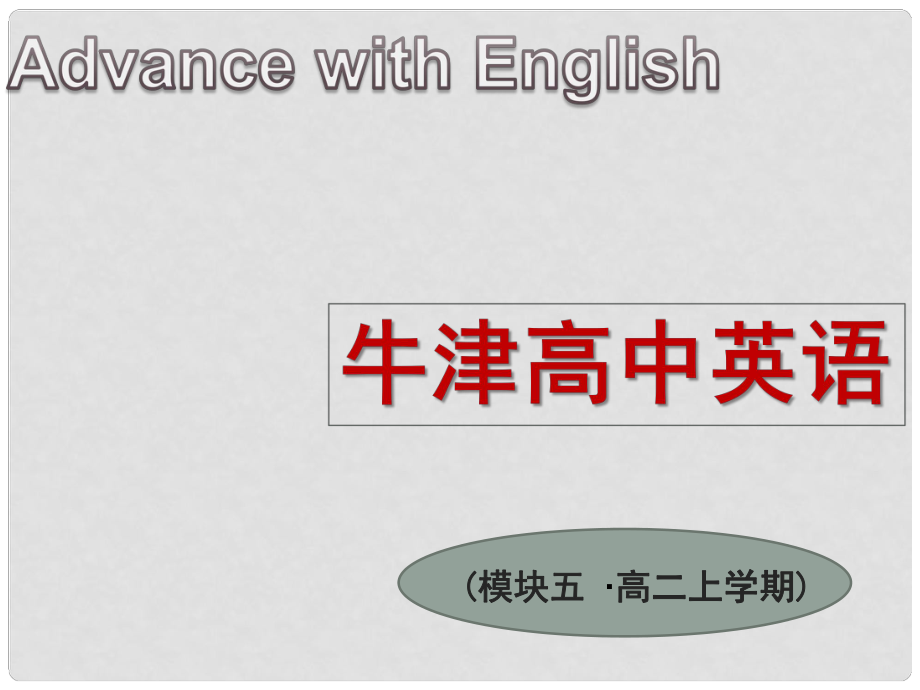《江蘇省常州市西夏墅中學(xué)高中英語(yǔ) Unit1 Getting along with others Grammar and usage課件1 牛津譯林版必修5》由會(huì)員分享����,可在線閱讀,更多相關(guān)《江蘇省常州市西夏墅中學(xué)高中英語(yǔ) Unit1 Getting along with others Grammar and usage課件1 牛津譯林版必修5(25頁(yè)珍藏版)》請(qǐng)?jiān)谘b配圖網(wǎng)上搜索�。
1、( (模塊五模塊五 高二上學(xué)期高二上學(xué)期) )GrammarTo-infinitive課件描述:課件描述: 本課語(yǔ)法教學(xué)主要使學(xué)生掌握不定式的功能和本課語(yǔ)法教學(xué)主要使學(xué)生掌握不定式的功能和用法���。本課采用語(yǔ)法教學(xué)與單元話題緊密結(jié)合的方用法���。本課采用語(yǔ)法教學(xué)與單元話題緊密結(jié)合的方式�,使學(xué)生在使用英語(yǔ)討論朋友和友誼這一話題中���,式�,使學(xué)生在使用英語(yǔ)討論朋友和友誼這一話題中����,發(fā)現(xiàn)、歸納�、掌握并適當(dāng)操練不定式的用法。整堂發(fā)現(xiàn)����、歸納、掌握并適當(dāng)操練不定式的用法��。整堂課以上一課時(shí)閱讀中的內(nèi)容為線索�,給語(yǔ)法教學(xué)創(chuàng)課以上一課時(shí)閱讀中的內(nèi)容為線索,給語(yǔ)法教學(xué)創(chuàng)設(shè)真實(shí)的語(yǔ)境��,并通過(guò)游戲���、競(jìng)賽等活動(dòng)�����,活躍課設(shè)真實(shí)的語(yǔ)境
2���、,并通過(guò)游戲���、競(jìng)賽等活動(dòng)���,活躍課堂氛圍,使學(xué)生快樂(lè)學(xué)習(xí)語(yǔ)法���。堂氛圍����,使學(xué)生快樂(lè)學(xué)習(xí)語(yǔ)法����。 What can we learn about friendshipfrom Annies letters?1. To talk to a friend openly and sincerely when something unpleasant happens is very important if we are to keep the friendship. 2. We should always remind ourselves to trust our friends whatever happ
3、ens. subjectpredicativeobject complementStudy the two letters on Page 5, trying to find out more To-infinitives in the letters and tell their functionsin the sentences. (1) You have every right to feel betrayed (attribute)(2) she wanted to embarrass you in public (object)(3) It seems you need to apo
4�、logize quickly to avoid losing a good friend! (4) , one of you has to be the first to admit (object) (attribute) (object)(adverbial) 動(dòng)詞不定式由動(dòng)詞不定式由“to+動(dòng)詞原形動(dòng)詞原形”構(gòu)成��,其否定形式是構(gòu)成����,其否定形式是not to do��。動(dòng)詞不定式可以單獨(dú)使用或用作動(dòng)詞�。動(dòng)詞不定式可以單獨(dú)使用或用作動(dòng)詞不定式短語(yǔ)的一個(gè)部分。不定式在句中可做主語(yǔ)�、不定式短語(yǔ)的一個(gè)部分。不定式在句中可做主語(yǔ)����、賓語(yǔ)、狀語(yǔ)���、表語(yǔ)賓語(yǔ)�����、狀語(yǔ)����、表語(yǔ)��、賓語(yǔ)補(bǔ)足語(yǔ)和定語(yǔ)等,但不能賓語(yǔ)補(bǔ)足語(yǔ)和定
5�、語(yǔ)等,但不能單獨(dú)作謂語(yǔ)�。單獨(dú)作謂語(yǔ)。 The functions of To-infinitive1. 作主語(yǔ)作主語(yǔ)To read English every day is necessary. (不定式(不定式to read English every day 做主語(yǔ))做主語(yǔ))動(dòng)詞不定式做主語(yǔ)時(shí)����,為了句子平衡,通常用動(dòng)詞不定式做主語(yǔ)時(shí)�,為了句子平衡,通常用it做做形式主語(yǔ)���,而把不定式放在謂語(yǔ)之后。例如:形式主語(yǔ)�,而把不定式放在謂語(yǔ)之后。例如: It is necessary to read English every day. It is a good idea to go for a pi
6�����、cnic today.2. 作賓語(yǔ)作賓語(yǔ) I want to see a film. (不定式(不定式to see a film 做賓語(yǔ))做賓語(yǔ))不定式做賓語(yǔ)時(shí)�����,若還帶有賓語(yǔ)補(bǔ)足語(yǔ)����,往往把不定不定式做賓語(yǔ)時(shí)�,若還帶有賓語(yǔ)補(bǔ)足語(yǔ)�,往往把不定式放在補(bǔ)足語(yǔ)后,用式放在補(bǔ)足語(yǔ)后���,用it做形式賓語(yǔ)���。例如:做形式賓語(yǔ)。例如: He find it difficult to learn Chinese. We think it important to master a foreign language.3. 作賓語(yǔ)補(bǔ)足語(yǔ)作賓語(yǔ)補(bǔ)足語(yǔ)He invited me to give a speech on Chi
7��、nese history. (不定式(不定式to give a speech on Chinese history 做賓做賓語(yǔ)補(bǔ)足語(yǔ)��,補(bǔ)充說(shuō)明賓語(yǔ)語(yǔ)補(bǔ)足語(yǔ)�,補(bǔ)充說(shuō)明賓語(yǔ)me)I have a letter to post. (不定式不定式to post做定語(yǔ),修飾名詞做定語(yǔ)���,修飾名詞letter)1)做定語(yǔ)的不定式如果是不及物動(dòng)詞�,不定式后面做定語(yǔ)的不定式如果是不及物動(dòng)詞���,不定式后面須有相應(yīng)的介詞�。例如:須有相應(yīng)的介詞。例如: She had only a small room to live in. I need a pen to write with.4. 4. 作定語(yǔ)作定語(yǔ)2) 2) 試
8�、比較:試比較:Do you have anything to wash? Do you have anything to wash? 你有什么要洗你有什么要洗嗎?嗎�����?(不定式(不定式to washto wash的動(dòng)作執(zhí)行者是的動(dòng)作執(zhí)行者是youyou)Do you have anything to be washed? Do you have anything to be washed? 你有什你有什么要(別人)洗嗎��?么要(別人)洗嗎��?(不定式(不定式to washto wash的動(dòng)作執(zhí)的動(dòng)作執(zhí)行者是別人��,而不是行者是別人�����,而不是youyou)5. 作表語(yǔ)作表語(yǔ)His wish is to b
9���、ecome a lawyer. (不定式不定式to become a lawyer在連系動(dòng)詞在連系動(dòng)詞is后做表語(yǔ)后做表語(yǔ))6. 6. 作狀語(yǔ)作狀語(yǔ)表示目的表示目的。例如:���。例如:They worked hard day and night to pay back They worked hard day and night to pay back the debt.the debt.表示結(jié)果表示結(jié)果�����。例如:���。例如:I hurried to the airport only to find the I hurried to the airport only to find the plane
10����、had taken off.plane had taken off.表示原因表示原因���。例如:�。例如:She felt disappointed to hear the news that She felt disappointed to hear the news that she hadnt been promoted.she hadnt been promoted.Pass the sentences on Thanks to my friends, my life seem to be getting easier and more interesting. Matthew may pr
11�、etend to be making friends with Peter. Personally, I feel happy to have made some good friends. He is said to have recovered friendship with Tom.不定式還有進(jìn)行形式不定式還有進(jìn)行形式(to be doing)和完成形式和完成形式(to have done) They seem to be reading in the library.(動(dòng)詞不定式動(dòng)詞不定式to be reading表示動(dòng)作表示動(dòng)作read正在發(fā)生正在發(fā)生) Im sorry to ha
12、ve said that. (動(dòng)詞不定式(動(dòng)詞不定式to have said that表示動(dòng)作表示動(dòng)作say發(fā)生在過(guò)去���,發(fā)生在過(guò)去�����,并且已完成并且已完成)Different forms of To-infinitiveLearn to use To-infinitive to talk about what you have learned about friendsand friendship.So we should trust each other to make our friendship last long. bare infinitiveBrainstorming: Can yo
13�����、u think of other words or phrases after which the bare infinitive is used?(1)在在FEEL, HEAR, LISTEN TO 等感官動(dòng)詞后�,或在等感官動(dòng)詞后��,或在LET, MAKE, HAVE 等使役動(dòng)詞后的賓語(yǔ)補(bǔ)足語(yǔ)中,等使役動(dòng)詞后的賓語(yǔ)補(bǔ)足語(yǔ)中�,不定式不帶不定式不帶TO。 但是這些句子變成被動(dòng)結(jié)構(gòu)時(shí)����,就但是這些句子變成被動(dòng)結(jié)構(gòu)時(shí),就必須帶必須帶TO���。例如:���。例如: I often hear him sing the song. She made me promise to write every day. He i
14、s often heard to sing the song. I was made to promise to write every day.Bare infinitive(2)WOULD RATHER, HAD BETTER和和WHY NOT 后面��,不定式不后面��,不定式不 帶帶TO����。例如:。例如: I would rather stay at home. Why not come in?(3)當(dāng)兩個(gè)動(dòng)詞不定式由當(dāng)兩個(gè)動(dòng)詞不定式由AND, OR, THAN, RATHER THAN, AS或或LIKE相連接時(shí)���,通常第二個(gè)不定式要省略相連接時(shí),通常第二個(gè)不定式要省略TO����。例如:���。例如: Do
15、 you want to go skating or see a film? I decided to write rather than phone.(4)不定式在介詞不定式在介詞BUT, EXCEPT后時(shí)��,若介詞前有行為后時(shí)���,若介詞前有行為動(dòng)詞動(dòng)詞DO的各種形式��,介詞后的不定式不帶的各種形式�,介詞后的不定式不帶TO��。例如:�����。例如: He did nothing but point to the door.Finish the Thank-you letter from Sarah to Annie by filling in the blanks. Keys: (1) to thank (2) to see (3) to think (4) trust (5) lose (6) apologize (7) to talk (8) keep (9) to go (10) not to hate (11) to forgive (12) be (13) to be getting (14) to have (15) to have got (16) get
 江蘇省常州市西夏墅中學(xué)高中英語(yǔ) Unit1 Getting along with others Grammar and usage課件1 牛津譯林版必修5
江蘇省常州市西夏墅中學(xué)高中英語(yǔ) Unit1 Getting along with others Grammar and usage課件1 牛津譯林版必修5

